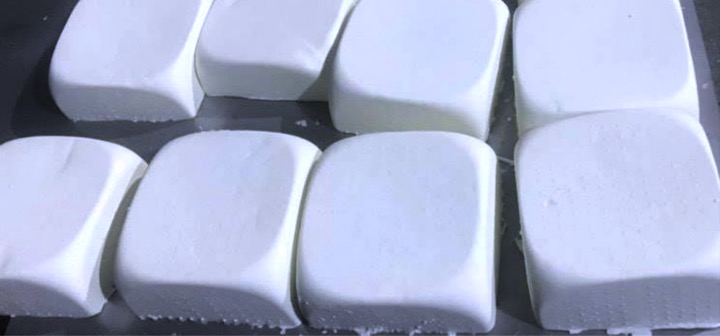A Food and Drug Administration (FDA) team seized 442 kg consignment of ‘cheese analogue’ on Wednesday.
After collecting samples, the entire consignment was destroyed by the FDA team comprising food safety officers Raviraj Dabharde, Rajesh Yadav, assistant commissioner, vigilance, AS Mahajan, joint commissioner, vigilance, Rajendra Khade. “While authentic paneer costs nearly 380/kg, ‘cheese analogue’ is pegged at 200/kg in the market,” said Dabharde, adding the price difference is a point of contention along with packaging and labelling.
‘Use only milk-based real cheese,’ McDonald’s says after Maharashtra FDA accuses fast food giant of using vegetable oil
Emergence and popularity of ‘cheese analogues’ as a cheaper alternative in the hotel industry has left the dairy sector fuming, while triggering a debate on legality of its use and supply.
FDA assistant commissioners Prashant Deshmukh and Rohan Shah stated distribution of ‘cheese analogues’ is not illegal, as per Food Safety and Standards Act, 2006 and Food Products, Standards and Food Additives Regulations 2011. “What’s illegal is the absence of declaration and identification of material (cheese analogue) in the packaging along with batch number, expiry date, details of manufacturers, ingredients, and their values. Cheese analogues are being sold as ‘paneer’, which is unacceptable. An informative billing with details as per law is required for trade,” said FDA officials.
Experts stated customers at hotels and the restaurants are victims of this double standard, when served with ‘cheese analogues’ as paneer and cheese. “Authentic paneer is made of milk and milk solids and easily melts in the mouth with a sublime milky taste. Cheese analogues are harder and tougher to chew. The chefs try to cover up the defect with spicy gravy and decorations, which makes customers overlook the difference in the texture and taste,” said Deshmukh.
FDA experts also stated ‘cheese analogue’ is prepared by vegetable oil and milk powder or solids. “The Butyro refractometer or BR meter index for milk fats is between 40%-44%, but is above 44% for vegetable fats. If FDA analysts find the BR reading more than 44%, it’s concluded as ‘cheese analogue,” said Deshmukh, adding FDA teams have kicked off a stringent drive against adulterated ‘paneer’. “Already samples have been collected from two places during our ongoing drive against paneer,” said Deshmukh.
The first microbiology laboratory of the state FDA will open at BKC, combating adulteration and contamination. It is part of India’s food lab infrastructure, ensuring compliance with regulations. The FDA commissioner oversees the opening, adding to the 900 laboratories in India, with only 10% in the government sector.
Maharashtra Food and Drug Administrations are pulling up McDonalds for serving non-milk-based cheese without adequate disclosure. Vegan cheese is made from vegetable oils or plant-based ingredients including nuts, soy, coconut oil, and root vegetables. It involves thickeners like agar or tapioca, nutritional yeast, bacterial cultures, and acids.
Amid allegations of using substitutes instead of real cheese, McDonald’s India asserts using genuine cheese, collaborating with suppliers adhering to global standards, and emphasizing their commitment to ingredient transparency and high-quality meals. The Maharashtra FDA has suspended a McDonald’s outlet’s license and urges for corrective measures. McDonald’s addresses concerns on Twitter.
Source : Times of India March 02nd 2024

